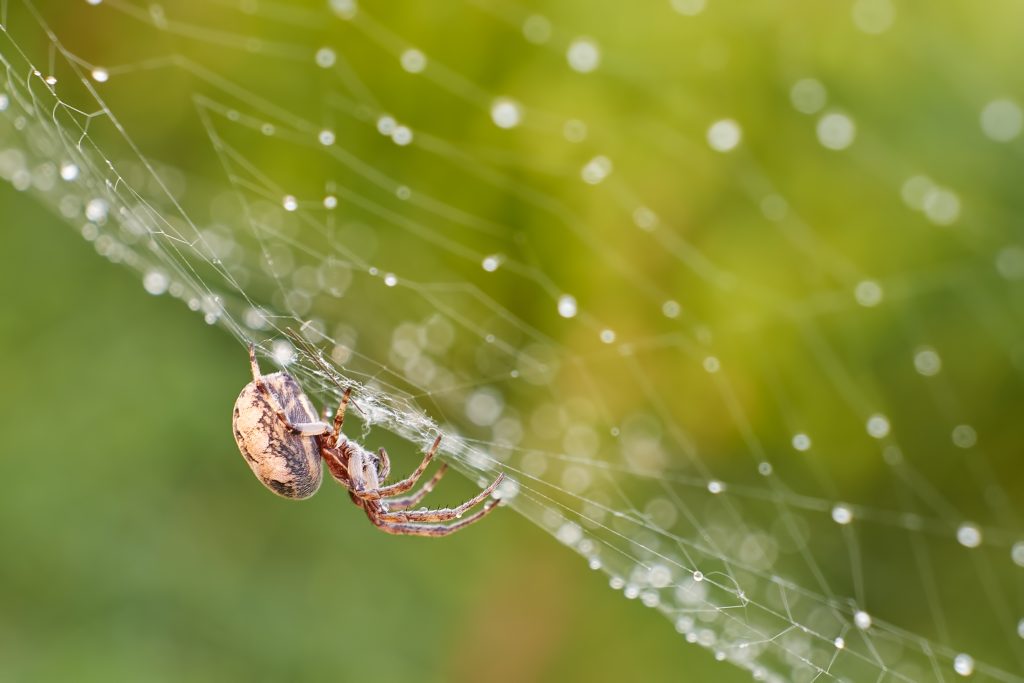How to Safely Repel Spiders Without Harming the Environment
Spiders, while often unwelcome guests, play an essential role in our ecosystems. They are natural predators, controlling the population of pests such as mosquitoes and flies. However, their presence in our homes can be unsettling and sometimes dangerous, depending on the species. Finding a balance where we can coexist with these creatures without resorting to harmful methods is key. This article will guide you through understanding why spiders might be attracted to your home and how you can safely repel them using environmentally friendly strategies.

Understanding Why Spiders Enter Your Home
Spiders typically enter homes in search of two primary resources: shelter and food. Your residence might appear as an ideal refuge from harsh weather conditions or as a promising hunting ground teeming with other household pests. Understanding this can be crucial in managing your approach to spider control. By cutting off their food supply and making your home less inviting, you can significantly reduce your eight-legged encounters.
Harmful Methods of Spider Repellents
Traditionally, many resort to chemical pesticides to ward off spiders, but these substances can be harmful to both human health and the broader environment. Persistent use of chemical repellents contributes to air and water pollution and can harm non-target species that are beneficial to our gardens and natural surroundings. Recognising the adverse effects of these agents invites a closer look at safer, more sustainable alternatives.
Safe and Eco-Friendly Methods to Repel Spiders
A. Maintain Cleanliness and Eliminate Clutter
A clean home is your first defence against spider invasions. Spiders thrive in hidden, undisturbed areas, so regular cleaning and decluttering can greatly diminish their hiding spots. Focus on areas like basements, attics, and garages where spiders are likely to find a quiet corner to settle.
B. Seal Cracks and Gaps in Walls and Windows
Prevention is better than cure. Carefully sealing cracks and gaps in walls, windows, and doors is an effective way to prevent spiders from entering your home. This not only keeps spiders out but also enhances your home’s energy efficiency by eliminating draughts.
C. Use of Natural Repellents
Several natural substances can repel spiders without causing harm to them or the environment. Essential oils such as peppermint, tea tree, and eucalyptus have been noted for their spider-repellent properties. A diluted solution can be sprayed in areas where spiders frequent. For more detailed recipes and methods, visit Rockypest Control’s guide.
D. Utilizing Plants that Repel Spiders
Incorporating certain plants into your home and garden can serve as a natural deterrent for spiders. Plants like lavender, lemon balm, and mint emit scents that spiders find unpleasant. This method adds aesthetic value to your home while keeping it spider-free.
E. Ensuring Proper Exterior Lighting
Spiders are attracted to areas where they can easily hunt, and outdoor lights attract plenty of insects that spiders feed on. Opt for lights with a yellow tint or sodium vapour lights, which are less likely to attract insects, thereby reducing your spider population.
How to Prevent Future Spider Invasions
A. Ensuring Regular House Cleaning and Maintenance
Consistency is key in spider prevention. Regular housekeeping eliminates potential spider webs and dissuades spiders from returning. Pay attention to corners of ceilings, undersides of furniture, and behind cupboards where spiders might form new webs.
B. Regular Inspection of Potential Entry Points for Spiders
Periodic checks of your home’s perimeter for new cracks, gaps or holes are crucial. It’s important to repair any new entry points promptly to keep spiders and other pests at bay.
C. Maintaining Regular Use of Natural Repellents
Creating a routine for applying natural repellents will ensure your home remains unattractive to spiders. Regularly refreshing sprays around entry points and areas where spiders are common helps keep your environment spider-free in a safe, non-toxic manner.
The Role of Professional Pest Control
While DIY methods are effective for minor infestations, severe spider infestations might require professional pest control. Professionals can provide more permanent solutions with minimal ecological impact, ensuring safety and effectiveness. Choosing a certified and environmentally responsible pest control service is crucial for maintaining the ecological balance while solving spider problems.
Conclusion
Managing spider populations within your home doesn’t have to involve harsh chemicals or endanger your health and the environment. By understanding the reasons behind spider invasions and employing safe, natural deterrents, you can effectively keep your home spider-free. Regular maintenance and cleanliness, along with the strategic use of natural repellents and professional pest control services, provide a comprehensive and eco-friendly strategy for spider management. This approach not only respects the ecological role of spiders but also preserves the sanctity of our homes.
